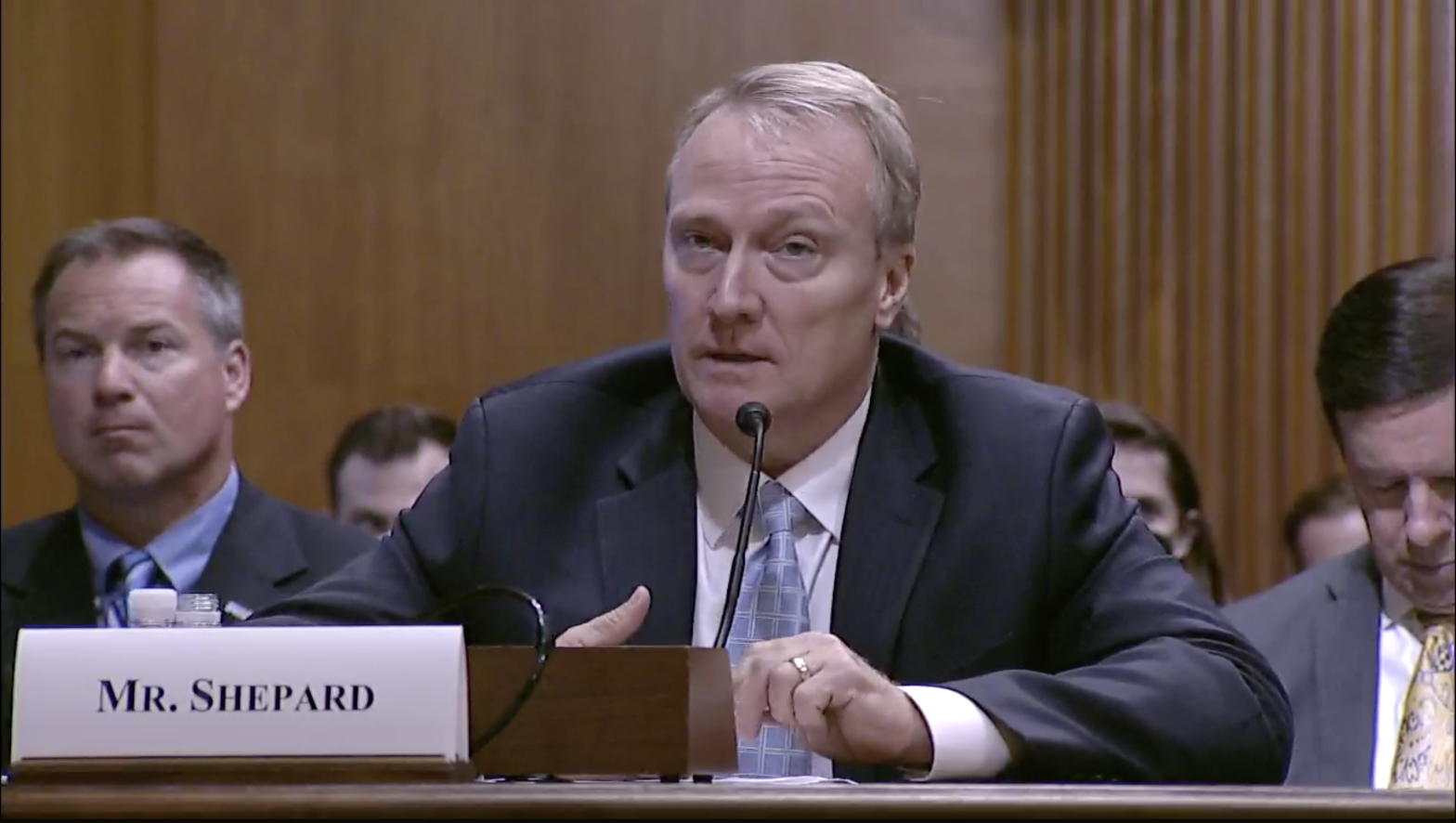Organ Transplant Network Is a ‘System in Need of Repair’

WASHINGTON — For 36 years, the United Network for Organ Sharing has provided a system for sick patients to get donated vital organs but members from the Senate Committee on Finance are finding continued issues with the technology, and the government has little authority to change it.
“Far too many Americans are dying needlessly because UNOS and many of the transplant organizations that it oversees are failing, and seem uninterested in improving,” said Sen. Ron Wyden, D-Ore., who serves as chairman of the Senate Finance Committee, during a hearing held by the committee on Aug. 3.
“The system is outdated, mismanaged and insecure … using such decrepit technology to run the transplant network puts lives in danger and sensitive data at risk,” continued Wyden.
According to Wyden, the National Organ Transplant Act of 1984 created the first computerized system to match sick patients with the organs they need — named the organ procurement transplantation network.
“Someone needed to manage that system for the whole country, so the government sought to contract an organization to run it,” said Wyden.
That organization was UNOS, the only bidder for the contract in 1986. Wyden said that since that time the contract has come up for bid seven other times, but UNOS has won all seven.
The network UNOS oversees is made up of nearly 400 members, including 252 transplant centers and 57 regional organizations known as organ procurement organizations.
“When a kidney donated in Corvallis needs to get to a patient in Portland, that’s where an organ procurement organization comes in. UNOS oversees the OPOs,” said Wyden.
“UNOS is doing this job quite poorly,” continued Wyden.
For more than two and a half years, Wyden and Sens. Chuck Grassley, R-Iowa, Ben Cardin, D-Md., and Todd Young, R-Ind., have conducted an investigation of UNOS.
“We’ve reviewed 100,000 UNOS documents, totaling more than half a million pages,” said Wyden.
So far, the ongoing investigation revealed that between 2010-2020, more than 1,118 complaints were filed by patients and families, staff transplant centers, and others against OPOs.
The nature of the complaints showed that many times OPOs failed to complete critical and mandatory tests for matters like blood types, diseases and infections.
“Our investigation found one patient died after being transplanted with lungs that a South Carolina OPO marked with the wrong blood type,” said Wyden.
In total, the investigation found that between 2008-2015, a total of 249 transplant recipients developed a disease from transplanted organs, and more than 25% of them died.
Wyden said in some cases, organs were abandoned at airports or never picked up which resulted in organs being discarded.
“Filing official complaints with UNOS appears to accomplish zero productive oversight or reform,” said Wyden.
Wyden described that many of his colleagues have found there is a “UNOS black hole” of filing complaints, where the complaints come in, but nothing comes out.
According to data from the Centers for Medicare and Medicaid Services, 20 Americans die each day because an organ transplant remains out of reach.
CMS implemented new standards for OPO performance in August 2022, and found that more than a third of OPOs are failing to meet prior performance standards.
The UNOS system was placed under even greater scrutiny when a report was released last year from the U.S. Digital Service titled, “Lives Are At Stake: The Government’s Role in Modernizing the OPTN.”
The report finds that UNOS does not have the technical capability to modernize the system, and that there are “little to no incentives for UNOS … to ever modernize the operations of the [organ procurement transplantation network] and improve the current processes or technology, and the government has very little leverage to enact, or even encourage, change.”
Eric Steigleder, a media relations specialist in Communications at the United Network for Organ Sharing, said in an email to The Well News that UNOS vehemently disagrees with the findings of the USDS report, which makes inaccurate claims about the IT system.
He said UNOS entire allocation algorithm is hosted in the private cloud, which is contrary to the USDS report which claims that it is hosted on site.
The U.S. Health Resources and Services Administration has performed audits of the UNOS system, but does not have any real regulatory authority to make changes to the transplant system if needed.
The UNOS system would cost the government $55 million to buy in full. Currently, the system operates on patient fees and receives $6.5 million annually from HRSA towards its total annual operating costs of about $64 million.
Steigleder said that HRSA routinely conducts on-site audits of UNOS IT, and has not found any of the purported deficiencies raised by the USDS report.
He also said UNOS did provide HRSA auditors with portions of UNOS code, not just pseudocode as claimed in the USDS report.
“UNOS delivers and continually improves its high-performing IT system that gets the right organ to the right patient at the right time,” said Steigleder.
“Despite 3 million hacking attempts per day, UNOS has remained safe and secure,” continued Steigleder.
On Aug. 2, UNOS sent a letter to Carole Johnson, who serves as the Health Resources and Services administrator with the U.S. Department of Health and Human Services, mentioning the leaked USDS Report on the OPTN IT System, and claiming that they’ve never received an official copy of the draft report, and were not provided the chance to comment or identify any correct or inaccurate information.
“USDS also never shared any of these findings with UNOS, even after we learned of the report and requested it multiple times. The national system remains safe, secure, and efficient,” said Steigleder.
Alexa can be reached at [email protected]























